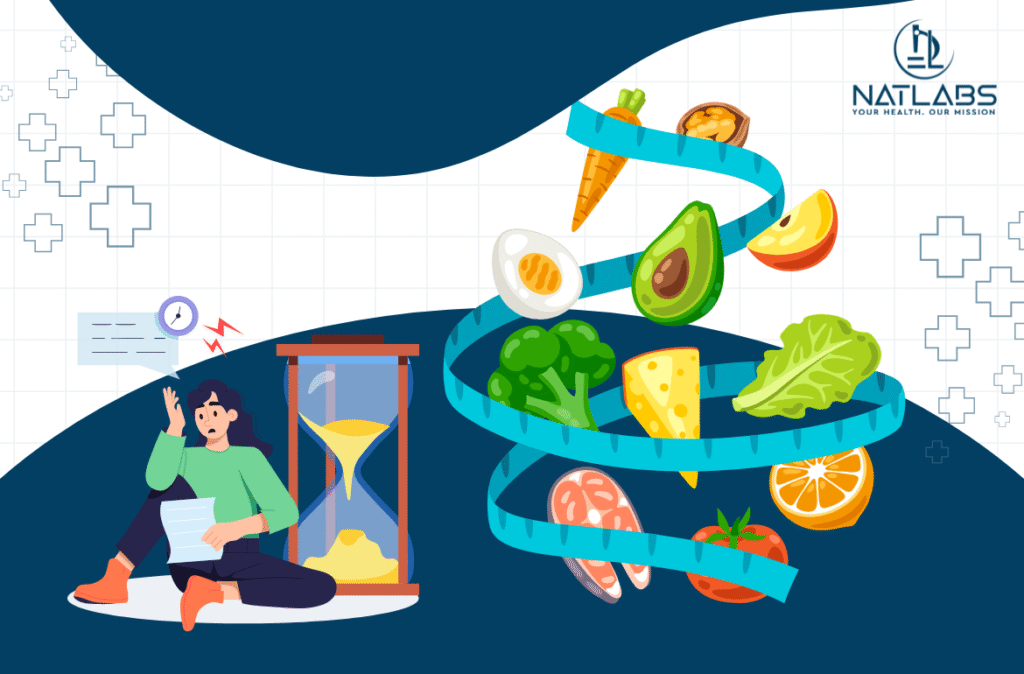
In the vibrant chaos of modern Indian life, where street food vendors compete with international fast-food chains and traditional dal-chawal shares table space with instant noodles, a quiet health crisis is unfolding. Despite India’s rich culinary heritage and increasing food choices, millions are experiencing “hidden hunger”, nutrient deficiencies that develop silently, often without obvious symptoms until they significantly impact health.
The Paradox of Plenty
India presents a fascinating nutritional paradox. Whilst supermarket shelves overflow with options and food delivery apps bring endless variety to our doorsteps, essential nutrients are mysteriously missing from many plates. Recent studies reveal that over 80% of Indians risk inadequate intake of vital vitamins and minerals, even when consuming sufficient calories.
This hidden hunger affects everyone, from software engineers in Bengaluru surviving on coffee and biscuits to homemakers in smaller cities who’ve replaced traditional cooking with convenient packaged alternatives. Economic prosperity hasn’t necessarily translated to nutritional prosperity.
The Common Culprits: What’s Missing from Indian Plates
Vitamin D: The Sunshine Paradox
Despite living in a sun-blessed country, 70-90% of Indians are vitamin D deficient. Urban lifestyles keep us indoors during peak sunshine hours, air pollution blocks UV rays, and cultural preferences for covered clothing limit skin exposure. This deficiency affects bone health, immunity, and mental wellbeing.
Vitamin B12: The Vegetarian Challenge
India’s large vegetarian population faces particular B12 challenges since this vitamin primarily comes from animal sources. Deficiency causes fatigue, nerve problems, and mood changes that are often attributed to stress rather than nutrition. Even non-vegetarians may be affected due to reduced absorption or inadequate intake.
Iron: The Silent Drain
Iron deficiency anaemia affects nearly 40% of urban dwellers, with higher rates in women and adolescents. This isn’t just about eating less spinach, poor iron absorption due to tea and coffee consumption with meals, combined with increased needs during growth and menstruation, creates widespread deficiency.
Protein: Quality Over Quantity
Whilst Indians consume grains and cereals abundantly, complete protein intake often falls short. Even wealthy families may lack essential amino acids if their diets rely heavily on refined carbohydrates with limited variety in protein sources.
The Micronutrient Gap
Folate, calcium, zinc, and vitamin A deficiencies contribute to poor concentration, weakened immunity, and increased chronic disease risk. These shortfalls often go unnoticed until they manifest as serious health problems.
Why Modern Life is Depleting Our Nutrition
The Convenience Trap
Traditional Indian cooking involved time-intensive preparation of diverse ingredients, grinding fresh spices, preparing lentils from scratch, and incorporating seasonal vegetables. Modern convenience foods, whilst saving time, often strip away nutrients during processing. A packet of instant breakfast cereal provides quick energy but lacks the nutritional complexity of traditional poha prepared with vegetables and nuts.
Lifestyle Pressures
Long work hours, extensive commutes, and academic pressures leave little time for mindful eating. Meals become fuel stops rather than nutritional opportunities. Skipped breakfasts, delayed lunches, and dinner replacements with snacks create nutritional gaps that accumulate over time.
Dietary Extremes and Fads
Social media-driven food trends sometimes promote unbalanced approaches. Extreme restrictions, whether complete raw food diets, excessive juice cleanses, or elimination diets, can inadvertently create deficiencies if not carefully managed with professional guidance.
Loss of Food Diversity
Despite apparent variety, actual dietary diversity has decreased. Many families rotate between a limited set of familiar foods rather than embracing the seasonal variety that traditionally characterised Indian eating patterns. The rainbow of colours that once filled Indian plates has often reduced to beige and white, refined grains, processed foods, and limited vegetables.
The Hidden Consequences
These deficiencies rarely announce themselves dramatically. Instead, they create subtle but pervasive effects: persistent fatigue blamed on stress, frequent infections attributed to “weak immunity,” poor concentration dismissed as ageing, or mood changes linked to life pressures.
Over time, these seemingly minor issues compound into serious health risks. Iron deficiency reduces work productivity and academic performance. Vitamin D deficiency increases fracture risk and autoimmune disease susceptibility. B12 deficiency can cause irreversible nerve damage if left uncorrected.
For children and adolescents, these deficiencies can impact growth, development, and learning capacity, effects that may persist into adulthood.
Taking Action: Uncovering What’s Hidden
Comprehensive Testing
Modern diagnostic capabilities can reveal nutritional status before symptoms appear. Comprehensive panels assess vitamin D, B12, folate, iron stores, and mineral levels, providing a clear picture of your body’s actual nutritional state rather than relying on guesswork.
These tests prove particularly valuable for vegetarians, people with digestive issues, those taking certain medications, or individuals following restricted diets for medical or personal reasons.
Targeted Interventions
Once deficiencies are identified, healthcare providers can recommend specific dietary modifications, appropriate supplementation, or lifestyle changes. This targeted approach proves more effective than generic nutritional advice or random supplement use.
For instance, iron deficiency might require specific timing of iron-rich foods, avoiding tea with meals, and combining vitamin C sources for better absorption. Vitamin D deficiency might need supervised supplementation combined with appropriate sun exposure timing.
Rediscovering Nutritional Wisdom
Traditional Indian cuisine, when properly prepared and varied, provides remarkable nutritional completeness. The concept of a balanced thali, incorporating grains, legumes, vegetables, healthy fats, and fermented foods, offers sophisticated nutritional science wrapped in cultural wisdom.
Modern nutrition can build on these foundations by incorporating convenient preparation methods, seasonal availability awareness, and scientific understanding of nutrient interactions.
Moving Forward with Awareness
Hidden deficiencies represent a solvable problem requiring awareness, testing, and thoughtful intervention. By understanding your individual nutritional status through proper assessment and making informed dietary choices, you can ensure that convenience doesn’t compromise long-term health.


